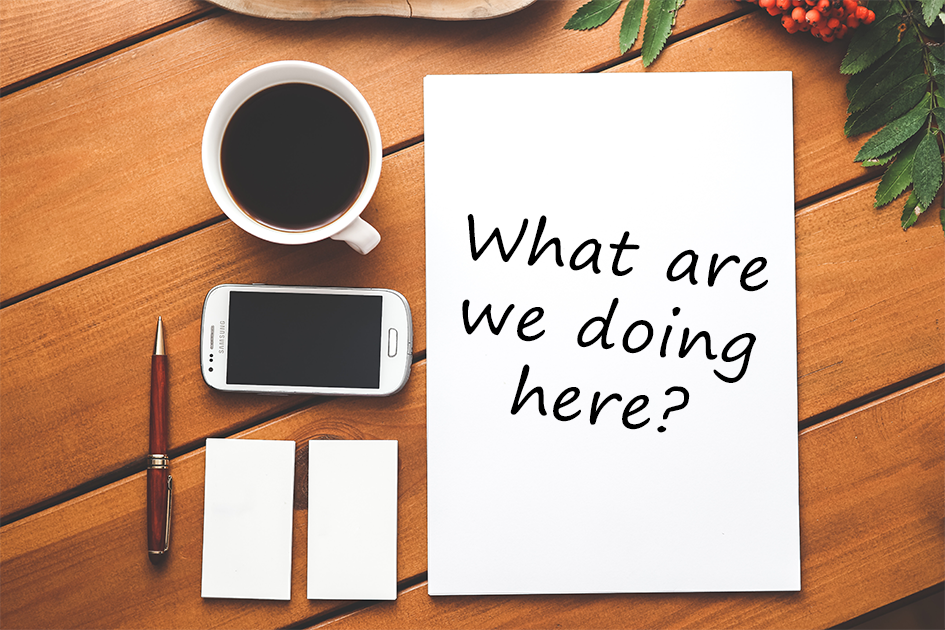This is the first entry in a four-part series that explores four questions: (1) What are we doing here? (2) Who is leading? (3) Who owns this place? (4) Who belongs? Aftab Omer, President of Meridian University, shared these “archetypal” questions while we were planning the annual gathering of the Global Learning and Exchange Network (GLEN) with the founders of the GLEN, David Sibbet and Gisela Wendling, and fellow GLEN members Karen Buckley and FireHawk Hulin.
The question—what are we doing here—might appear to be simple to answer. Upon reflection, it isn’t. Despite this, it is very important to answer.
Implicit in asking “What are we doing” is another question: Why are we doing what we are doing? What is the purpose or intention—that is either implicit or explicit—that drives all the doing? We do many things. We work. We take time off from work. We laugh, cry, love and hate. We talk with friends and colleagues. We create families, communities, and organizations. We walk, run, drive and fly. We build houses and highways. We destroy landscapes and lives.
Asking “What are we doing here?” and why reveals an underlying question: Is what we are doing congruent with our individual and/or collective purpose or intention?
Questions about purpose shine the light onto a number of areas. What is the purpose of life? The purpose of your life? Your organization? Your work? Your community (e.g., geographic, common interest groups)? Your relationships? Your prayers? Your day-to-day actions?
(Please note that I am leaving aside the question of whether a purpose is benign or harmful. The profound question of “What are we doing here?” and why can be answered in constructive or destructive ways.)
When you convene a meeting to solve a problem, accomplish a task, make a decision, learn, or conduct a ceremony, etc., do you refine your purpose to identify more specifically what you want to accomplish, i.e., desired outcomes?
“What are we doing” includes the evocative word “here.” Just as with the first part of the question, “here” can focus on any one of a number of possibilities. Which “here” do you want to pay attention to? The planet, a country, a community, an organization, a neighborhood, a family, or a particular meeting?
Archetypal or essential questions like the one I explore here invite us to reflect more deeply and broadly on what all the doing is about. Constant doing (oh, the tyranny of our “to do” lists!) that many of us are immersed in often precludes asking this preternaturally important question.
“What are we doing here?” is essential to ask in meetings so people can focus on what they want to accomplish in the present AND the future simultaneously. They build on one another.
For example at the GLEN gathering in July one immediate question was evaluating what had been accomplished during its initial year. The larger question was about how to work together to continue to evolve and apply collaborative methods across multiple boundaries to solve complex issues in the world.
Understanding what had been accomplished in the first year (e.g., building relationships with and learning from peers in various places around the world) strengthened our understanding of how various methodologies could be applied in various locations and with diverse groups. For example, how defining “value propositions” within businesses could help a global network refine and customize its strategies to work across multiple countries and cultures.
Given the extraordinary circumstances in which we find ourselves in the U.S. and the world, the question of “What are we doing here?” is an important one to ask repeatedly at home, at work, and in neighborhoods and communities. This question enables us to make more conscious choices about what we are doing, why, and to assess whether our current actions align with our immediate and longer-term purposes.
In the next three posts, I explore the “we” in the question of “What are we doing here?” in the context of the remaining three questions: “Who is leading? “Who owns this place?” and “Who belongs?”

